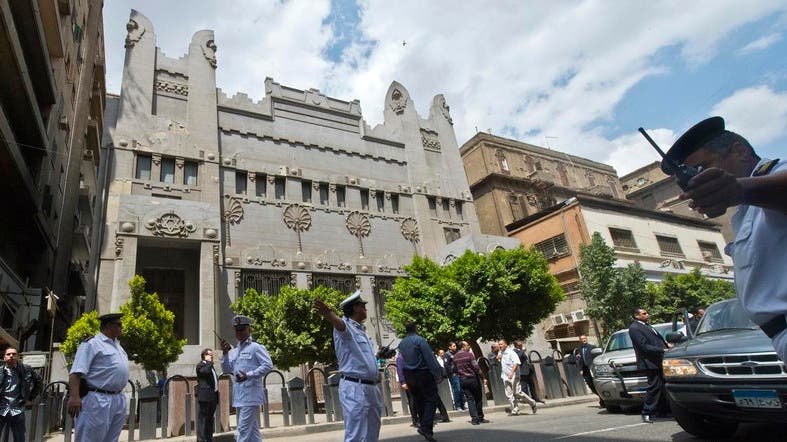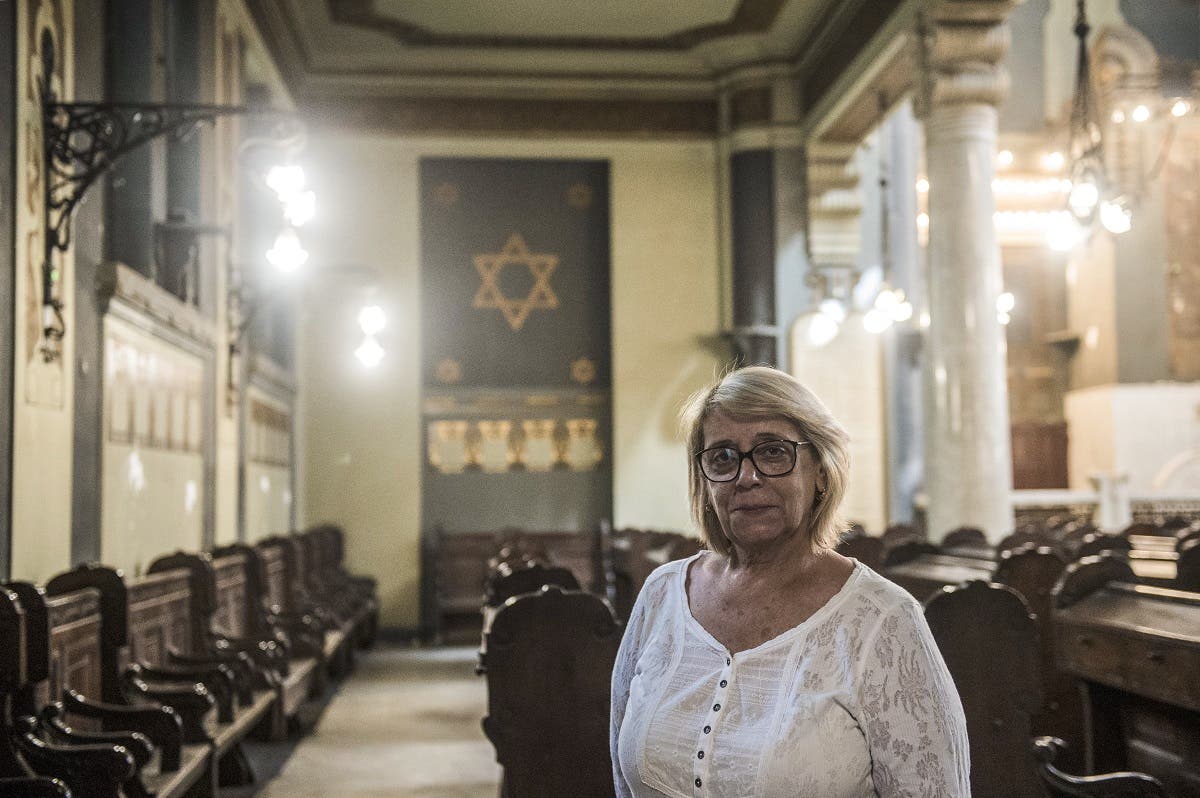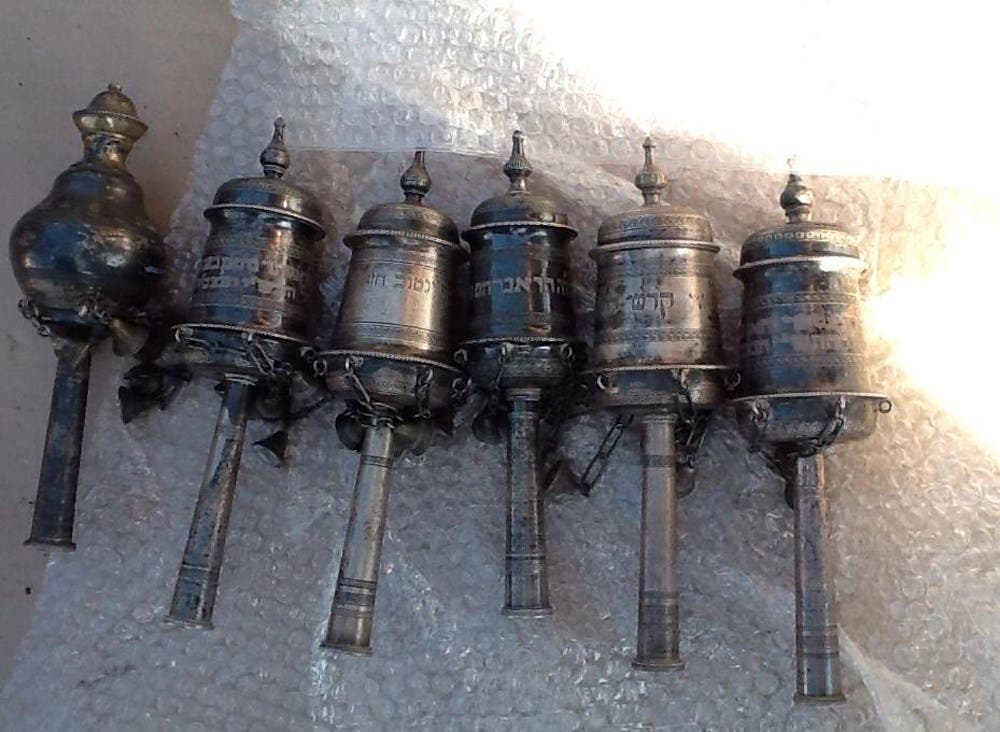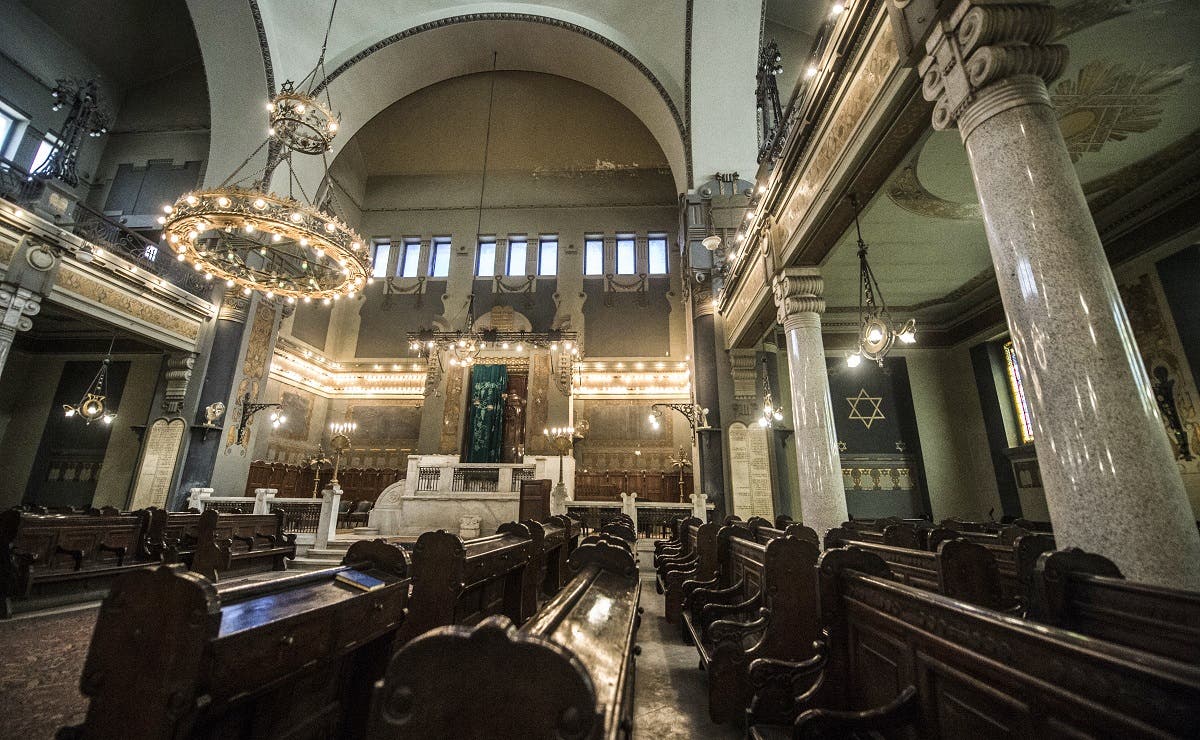
Still, there is no doubt that the amount allocated to the revival of Jewish heritage was a major source of controversy. (AFP)
In September of 2017, Egyptian President Abdel Fattah el-Sisi allocated $71 million for the restoration of Jewish sites. While seen by many as a long overdue step to acknowledge an important part of Egyptian culture, others have been skeptical as they questioned the motives and timing of it, or simply objected to the amount of money allotted to the project.
In December of the same year, the Ministry of Antiquities stated that Jewish landmarks are as much of a priority for the government as Pharaonic, Roman, Coptic, and Islamic sites. A year later, in 2018, the ministry announced the registration of 500 Jewish artifacts collected from several synagogues across Egypt.
Magda Haroun, the head of the Jewish community in Egypt, commended the seriousness of the government in preserving Jewish heritage and noted that the registration of Jewish artifacts, which include lamps, chandeliers, cups, and candlesticks, is extremely important since it protects them from damage and theft. Haroun also said that the project is expected to yield more benefits for the community in the future.
"We are now in talks with the Ministry of Culture to turn Jewish synagogues into cultural centers and we are also planning to cooperate to restore Jewish cemeteries," she said. "In the past, we used to face the challenge of a lack of awareness about Jewish heritage. Now, this challenge is disappearing at the government and public levels." In the first event of its kind, Haroun invited Jewish, Christian, and Muslim Egyptians in December of 2018 to the Sha'ar Hashamayim (Gate of Heaven) synagogue in downtown Cairo to celebrate Hanukkah. "We have a vast heritage and as an individual I am not worried about it because the youth of Egypt will preserve it," she said in the speech she gave at the ceremony.
On the other hand, Israeli journalist Ariel Ben Soloman argues that the restoration of Jewish heritage is more of a political step than a cultural one. He described Egypt's president as "operating based on realpolitik," which is also why Egypt cooperates with Israel on defense and intelligence issues.
Political analyst Haisam Hassanein of the Washington Institute for Near East Policy argued that three motives are likely to have given rise to recent interest in Jewish heritage in Egypt. The first is improving relations with the US as "the government sees American Jewish citizens and organizations as a gateway to US policymakers, whom they perceive as overtly sympathetic to Jewish causes." The second is tourism since the restoration of Jewish sites is bound to bring to Egypt Jewish tourists from all over the globe. The third is projecting an image of Egypt as an example of moderation, which Hassanein argues also boosts the image of Sisi.
Still, there is no doubt that the amount allocated to the revival of Jewish heritage was a major source of controversy. Prominent Egyptian architect Mamdouh Hamza said that the restoration of Jewish sites is a positive step, yet the fact that the Egyptian government pays for it, is not.
Abdel Rehim Rihan, director general of archeological studies in Sinai and the Delta at the Ministry of Antiquities argued that the restoration of Jewish sites should not be associated with politics, but should be regarded as a means of bridging the gap between cultures and achieving peaceful coexistence.
"Synagogues are museums in themselves. The holy chest in each of them contains the Torah scrolls in addition to typical Jewish items such as the menorahs," he said. Rihan added that there should be a permanent exhibiting room in each synagogue as is case with the Saint Catherine Monastery in the Sinai Peninsula. He also suggested that the manuscripts discovered in 1896 at the Ben Ezra synagogue and in 1987 at the Jewish cemetery in Cairo, both collections known as the Cairo Geniza, should be displayed at the Egyptian National Library and Archives. "Researchers should be allowed to use the manuscripts to conduct studies on a community that constituted an integral part of Egypt's social, economic, and political life."
Last Update: Sunday, 27 January 2019 KSA 14:05 - GMT 11:05





No comments:
Post a Comment